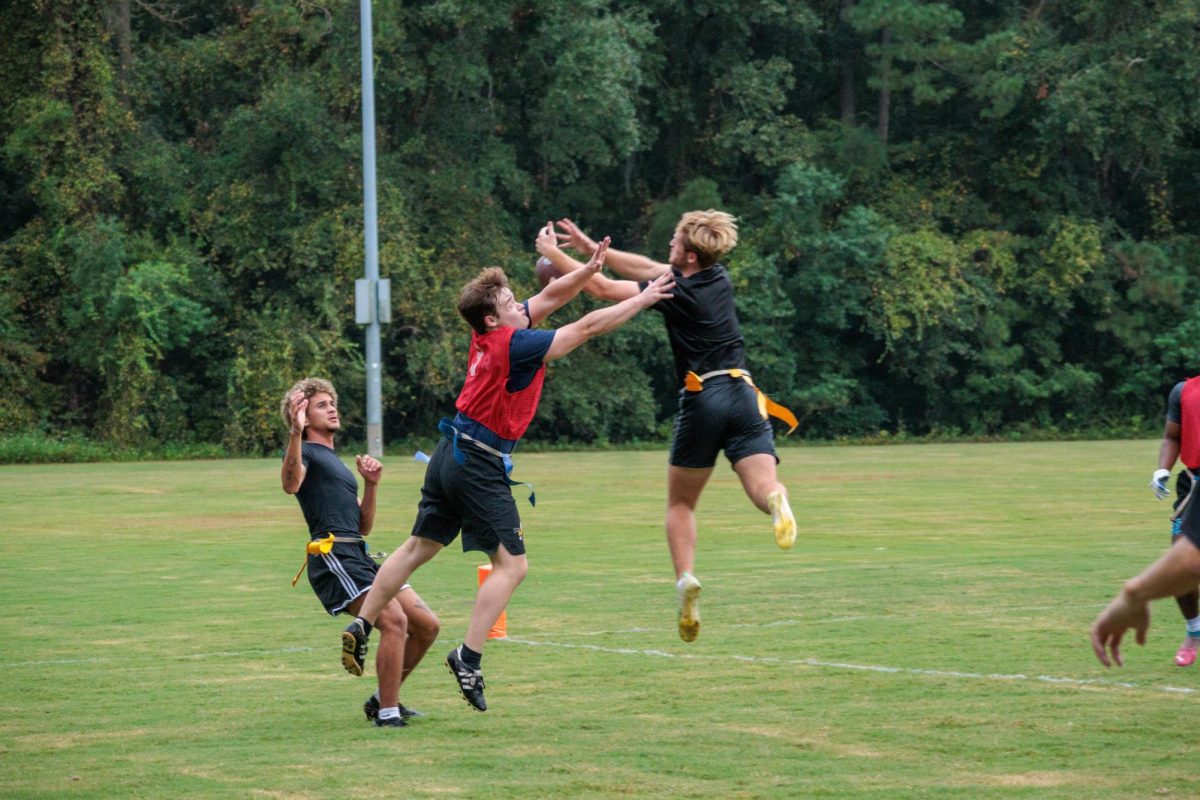Lila Miller, Arts & Entertainment Editor
“Is bullying an overarching problem in our school?” is how the Public Broadcasting Service (PBS) documentary “Bully” begins. A member of the school’s administration asked the question rhetorically, yet still answered, “no.” In the large room, UH 156, a crowd of student and public viewers could be heard murmuring, “yes,” and “it should be,” vehemently.
Last Tuesday, the Armstrong Campus held a screening of the anti-bullying documentary “Bully” directed by Lee Hirsch to raise awareness and prevention against bullying. Flyers displayed across campus touted the headline, “it takes one” for the campaign.
“Everything starts with one and builds up” is a phrase that signifies standing up against harassment and is echoed throughout the film.
A team of panelists were present to answer post-screening questions, and consisted of: Terry Enoch, a police officer that focuses on at-risk youth; Dr. Quentina Miller-Fields, director of Student Affairs of the Savannah-Chatham County Public School System (SCCPSS); Mackey Linton, an Islands High School student and victim of bullying; and a high school counselor for Chatham County schools.
The documentary itself showcased several different bleak realities of those who have suffered from bullying. The film switches perspectives between victims who have suffered to the extent of suicide or have relocated their families entirely. The reasons for bullying stem from various “causes” including scrutiny over sexual orientation, special needs or simply a lack of popularity.
“Bully” follows individuals, their families and school officials as it navigates the war zone that many American public schools have become.
The real disappointments in the film are the school leaders themselves. The officials are portrayed as sanctimonious and patronizing with an utter lack of empathy for the children being so mercilessly tormented by their peers. “Bully” provides more transparency into the school system and publicizes the need for more preventative measures to keep kids safe online and within the schools of our technologically advanced society.
After the viewing, panelists were asked to respond and shared their initial reactions.
“[I felt] mixed emotions. It [the film] brought back a time when I was a victim of bullying in high school… There’s a responsibility for everyone inside those school walls.
Bullying is real. It exists… I still get emails. I still get phone calls. The film was very impactful. Get involved. Get engaged. We have a shared responsibility. There’s so much more we can do,” Enoch expressed.
Mackey Linton took initiative after being a victim of bullying. Around the time her anti-bullying Youtube video went viral at the age of twelve, Linton started her own organization advocating for bullied children, School Kids Against Bullying (SKAB). Linton is now eighteen and a lot has changed for her in the past six years. Her work with SKAB has influenced school legislation, had local businesses rally around her and provided support and inspiration to victims towards the end of the eradication of bullying.
Linton spoke earnestly about her future and well-being. “I have more friends. Real ones this time,” she remarked.
Allegedly, Dr. Miller-Fields experiences scenarios like the ones shown in “Bully” every day.
“There’s suicide. Girls going to jail for bringing weapons to campus. I could be the author of this kind of documentary,” she said.
A local high school counselor also gave her thoughts on the film. She cited a lack of empathy among teachers and administration that allows bullying to continue, at all levels of schooling.
After the panelists spoke, they opened the forum to field questions from students, parents and other members of the community.
“What are the steps now that are being taken to prevent suicides or violence now? What’s being done by teachers or administration?” asked one student. Each panelist offered current resolutions.
“Educate. Listen. Investigate. We try to be proactive. Character counts,” answered Miller-Fields. She also referenced the 6 pillars of community that schools teach, “Trustworthiness, respect, responsibility, fairness, caring and citizenship.”
The school counselor also urged kindness, embracing diversity and holding monthly meetings with other counselors in the area to provide consistency.
Another student remembers one of the students in the documentary that was a victim of ‘bullycide’, in which the person commits suicide after being bullied.
“What are we doing in Savannah to train our administrators like they are doing less than three hours away from here? She [the administrator] was even condemning the victim,” the student expressed.
Ultimately, when facing bullying, as victim, bystander, teacher and administration, the key is accountability. Everyone within the walls of the school must be held accountable for the actions of bullies and for the responsibility of keeping kids safe.
The PBS documentary “Bully” can be watched online and people can join the movement to eradicate bullying by educating themselves by visiting thebullyproject.com





